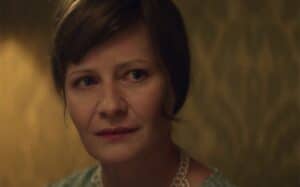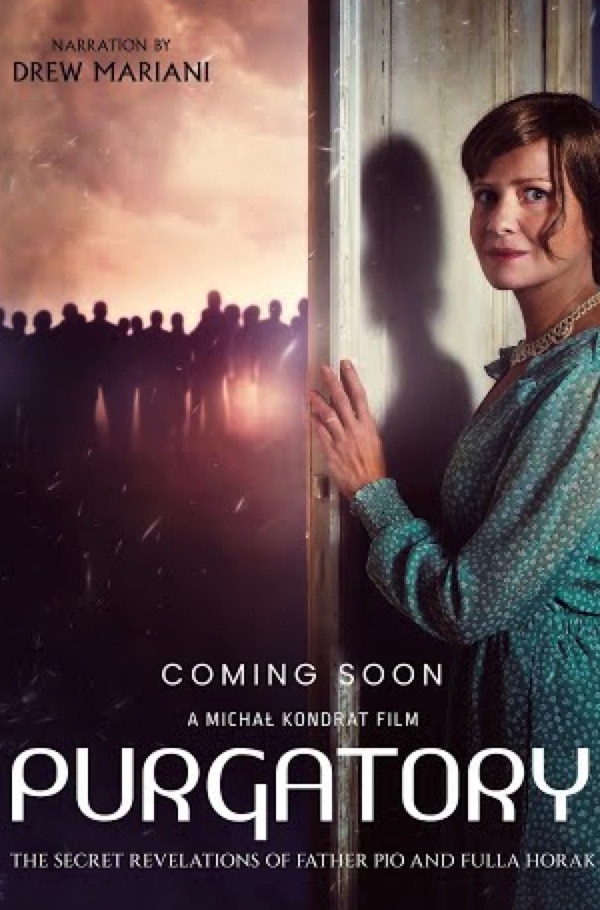What’s the first image that comes to your mind when you hear the word, “purgatory”? Artists over the centuries have depicted purgatory as a place where souls endure fiery torment while awaiting heaven, so you’re in good company if purgatory conjures up images of fire and suffering.
“Purgatory,” the new film by Michal Kondrat (Faustina: Love and Mercy), seeks to dispel fearful notions of purgatory, while at the same time issuing a call to repentance and prayer. The docudrama, which features the writings of mystics like Saint Faustina Kowalska, Saint Padre Pio and little-known (at least in the English-speaking world) Polish mystic, Fulla Horak, paints a beautiful picture of the “state” more than a “place” that we Catholics believe is given to us through God’s mercy to purify and cleanse us of any leftover reparation we owe for our sins after death. The film was originally done in Polish but now is available in English and will be shown as a Fathom event on Thursday, October 28th.
Through interviews with theologians, priests, and sisters from all over Europe, including Father Marciano Morra, O.F.M. Cap., who was a friend of Padre Pio, the film beautifully expounds on purgatory and how much we need to pray for the holy souls there. It also does not shy away from difficult questions in relation to purgatory such as those who commit suicide, or what happens to people considered evil like Adolf Hitler. In essence, the movie covers what Catholic tradition considers the “four last things.” Death, judgment, heaven, and hell. It also encourages us to look at our own lives, acknowledge our sins, make use of the Sacrament of Reconciliation, and do our best to make reparation for our sins while still on earth.

In telling about how holy souls in purgatory “visited” Padre Pio to ask him for prayers, the film is clear about the difference between a holy soul reaching out and evil presences.
During the course of the film, much emphasis is placed on the power of the Mass, the celebration of the Eucharist, to free souls from purgatory to the blessedness of heaven. One priest who was interviewed, who has been called to exorcise homes where an other-worldly presence was felt, said that if exorcism didn’t work, he would say Mass for the soul who died in that home.
Here are a few quotes that I found particularly inspiring:
“We can do something for the dead: pray.”
“Purgatory is a school of love. Those who imperfectly loved God and another person but still want to be with God for all eternity, enter purgatory.”
“The greatest force for souls – the cleansing fire – is longing for God.”
“Purgatory is a sign of mercy, a waiting room, a vestibule, a place we pass through to reach something sacred.”

As a film reviewer, there are many times when I don’t have a personal stake in the films I see. Sure, some films tell inspirational stories that move or enlighten me but not many leave me with a strong desire to get on my knees and pray. This one did. I immediately went to the website PrayforSouls.org to see how I could do more for the holy souls who are just waiting to be face-to-face with God and need our prayers to help them along. And a soon as I’m done writing and posting this review, I’m off to the chapel in our convent to make an Hour of Adoration for the holy souls. I hope you’ll join me after experiencing this profound film.



